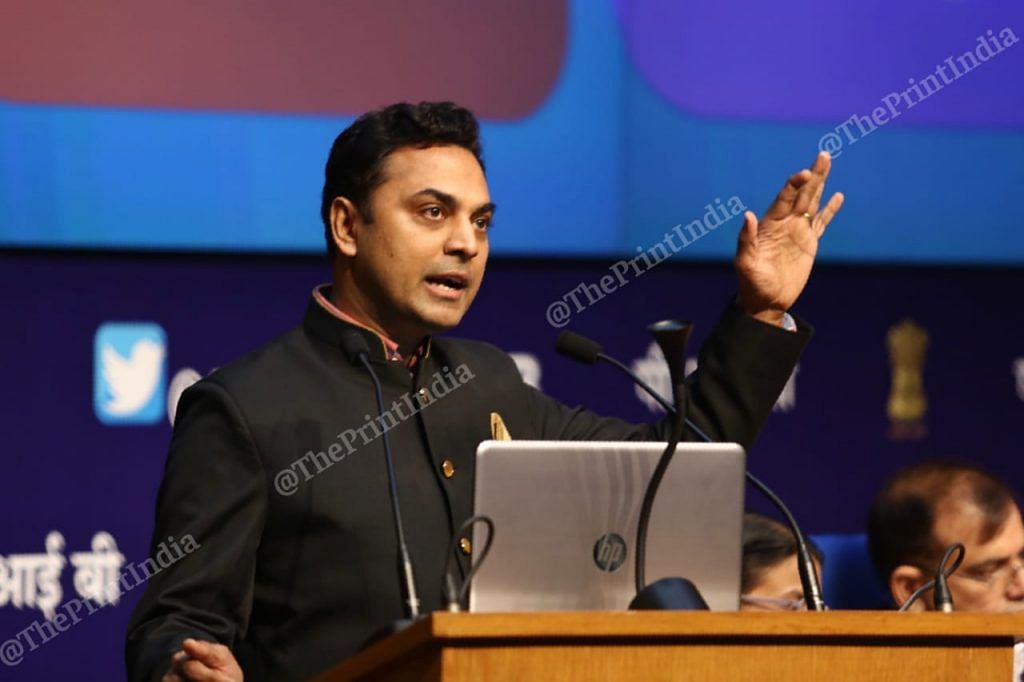Towards a $5 trillion economy
Krishnamurthy Subramanian | Chief Economic Adviser to the Government of India
The Times of India
CEA Krishnamurthy Subramanian highlights some of the important aspects of the latest economic survey. This survey, he writes, “departs from traditional thinking by viewing the economy as being either in a virtuous or a vicious cycle”. The survey also departs from a focus on just consumption-led economic growth and identifies private investments as the panacea that will increase demand, improve labour productivity and create jobs.
The survey also suggests making MSMEs more productive by recommending that all size-based incentives have a sunset clause of less than 10 years, writes Krishnamurthy.
Krishnamurthy also mentions that important changes have been made to enable common people to access the survey. This includes an abstract and a chapter at a glance along with short two-minute video of each section. These videos are available in both English and Hindi.
A new deal for Kashmir
Abhinav Kumar | The writer is an IPS officer serving in Kashmir
The Indian Express
Abhinav Kumar outlines three broad options to resolve the Kashmir problem. The first, he says, is an “attrition-driven” approach where India doesn’t make any changes to its constitutional relationship with Kashmir but continues with its present security approach. This, he says, is the “current status-quo” and the lesser of all possible evils.
The second approach, he argues, is what is advocated by certain members of Indian intelligentsia and civil society. This, he calls, an “abdication approach”. In this approach, Kashmiris are seen as “perpetual victims” and the Indian state is considered a villain. He says that advocates of this approach recommend that India should cede all demands of separatists which may range from complete autonomy to outright independence.
He calls the third approach the”assimilation approach”. This advocates removal of Articles 35-A and 370. The author advocates an adoption of this third approach and says that India now has the economic, military and international might to tackle the consequences.
Expanding India’s share in global space economy
Rakesh Sood | Former diplomat and currently a Distinguished Fellow at the Observer Research Foundation
The Hindu
Rakesh Sood argues that India needs a suitable policy environment so that its private sector can also participate and invest in the growth of its space sector. ISRO alone cannot satisfy the demand for space-based services in India, he says. He advocates the introduction of a new bill after the earlier draft Space Activities Bill introduced in 2017 lapsed.
He also highlights that today the value of global space industry is around 350 billion USD but India’s share is estimated at just 7 billion USD.
However, areas such as AI and data analytics have led to the emergence of a “new space” dynamic. A lot of start-ups are coming up in this area in India, with a focus on end-to-end services in the business-to-business segment. But absence of regulatory clarity is making it difficult for these start-ups to take off.
The Economic Survey fails to put the spotlight on real issues
Himanshu | Associate professor, JNU and visiting fellow, Centre de Sciences Humanities
Mint
The Economic Survey has failed to clear the air of doubt on the controversy over national accounts and even as former CEA Arvind Subramanian’s estimates of gross domestic product (GDP) had little merit, the issue deserve a response from the government, writes Himanshu. The survey not only failed in addressing this, it also did not provide a correct assessment of the economy’s state even though it prescribes some measures for achieving the Prime Minister’s ambitious target of having a $5 trillion economy. Despite evidences of a slowdown, amid acute distress and growing unemployment, it lacks diagnosis of where things went wrong and an acknowledgment of the challenges for growth revival, he says, adding that the focus on behavioural economics, however, is noteworthy.
A much-needed blueprint
Abheek Barua | Chief Economist, HDFC Bank
Business Standard
The Economic Survey has attempted to join the dots and draw the proverbial “big picture” pertaining to some of the critical contemporary economic issues, says Barua. He adds that the 7 per cent growth projection for the current financial year is reasonably conservative as is the assumption that the investment cycle has perhaps bottomed out. There is growing evidence of capacity constraints in a number of sectors. The survey is much like the previous reports: “dense with ideas, liberal with academic references but not giving the business of economic hisaab-kitaab short shift.” The main shortcoming is that it is full of ideas on how to achieve higher growth but a “little reticent” in explaining about the current economic slowdown.
Investment-driven economy
Sanjeev Sanyal | Principal Economic Adviser, GoI
The Economic Times
Sanyal, in his column, focuses on the growth drives. He notes that there is evidence, especially from East Asia, to suggest that such high growth rates have only been sustained by a virtuous cycle of savings, investment and exports supported by a favourable demographic phase. The Economic Survey pointed out that though India has a high share of working age population and will remain in this ‘demographic dividend’ phase, this favourable demographics is not sufficient. International experience suggests that high investment efforts must be backed by domestic savings, says Sanyal, adding that foreign investment can provide additional funds, technology and international value chain linkages. As investment-led growth model has constraints, exports must be boosted. Speeding up the legal system also must be given priority.
